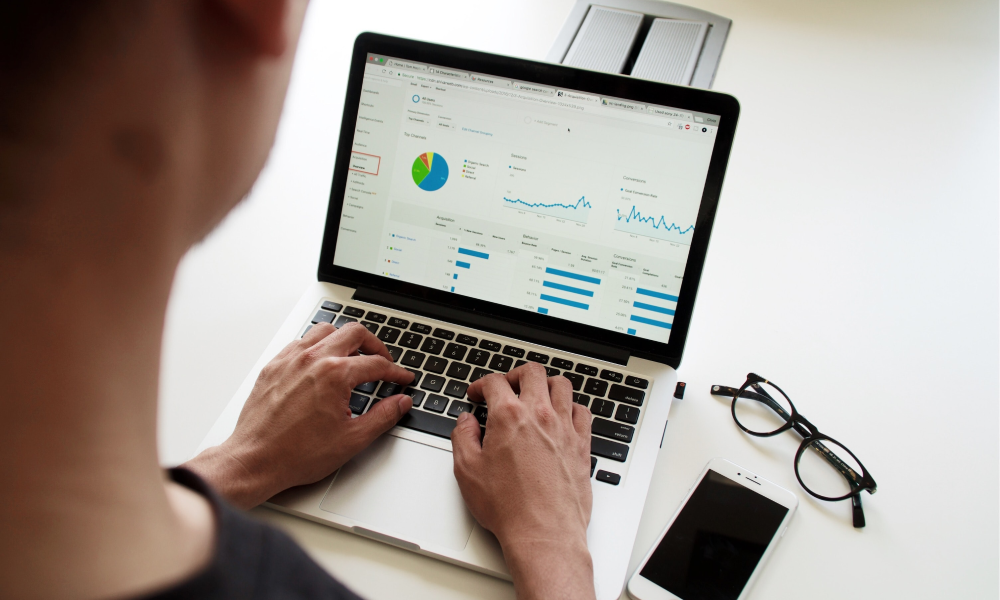Credit reporting, credit segregation and credit scores. Open Banking is now official.
Australians will now be able to instruct banks to send data to accredited third parties from the “big four” banks.
This will allow third parties to proactively use the data to provide customised information to consumers, or other financial intermediaries who can use the data to improve their client service and experience.
The ACCC previously released the official Consumer Data Right (CDR) Rules, clarifying ways to request CDR data and its application in the banking sector.
What does it mean?
In simple terms Open Banking gives people the ability to share their banking information with other parties, including other banks.
The origins of it relate to a concept called "Consumer Data Rights" which has the objective to build better consumer control over the data which businesses hold about consumers' use of their products and services.
Open Banking means that you will be able to share your data on-line with trusted third-party providers.
Australia's 'big four' banks have made data available on credit and debit card, deposit and transaction accounts.
Open Banking ... only as good as your Credit Score
You may have heard about credit scoring in the context of your finance application. A credit score is a statistical number that, based on credit history, indicates your credit worthiness.
Your credit score in Australia typically ranges from 0 to 1,000 or 1,200. The higher the score, the more financially trustworthy a person is from a lender’s perspective.
The score is driven by many obvious factors (your previous conduct, frequency of application etc.) though also by other demographic factors such as age and where you live. This science has been around for a while now, but we are seeing this being applied at new levels in the future, especially with emerging technology.
One of these is Comprehensive Credit Reporting - which allows more details of the credit you have (e.g. actual loan terms and repayments) to be included in your report. Though it goes further than this, and financiers are building their credit decisioning to new levels. Again, credit scoring is not new but is now based on deeper demographic data too, which allow a bank to look at high volume historical behavioural data, to produce a more sophisticated real time credit assessment. In fact, they are so prevalent you will hear niche funders say for a point of difference, “we don’t credit score our loan assessments”.
Complementing these Behavioural assessments is Credit Segregation.
This is a blunter means of credit decisioning determined on whether you meet exacting criteria. It allows financiers to target a direct segment of the market as a result. This has become popular with certain business finance products, take Equipment Finance for example. Say you purchase a new vehicle for business use, and you meet the following criteria:
✓ Have been in business for 2 years and have a registered ABN
✓ Have a clear credit history
✓ You own a residential property
✓ Clear ATO Tax Portal
You will generally get an immediate approval without the need to supply verifying income documentation. In addition, the rate on this finance facility may be less than if you do not meet the criteria and need to supply all other documentation. The banks are a business too, in this scenario they get the customers they want, and take a lot less time to generate a credit decision.
The Customer remains in control
Any person can request data that relates to things like eligibility criteria, terms, interest rates, relating to a range of products including home loans.
In these cases, data relating to a specific consumer cannot be requested or obtained. The institution will use a specialised service to disclose the product data, in machine-readable form, to the person who made the request.
Data made available to your Adviser/Broker
Accredited persons can approach an institution to obtain CDR data about their Customer. It must be only be in relation to the goods or services they are providing - much like the current data extraction tools.
How can I establish or maintain a good Credit profile?
There are some obvious statements to make here, and some softer measures that will help you too:
✓ Keep your ATO tax obligations up to date.
✓ Make your loan repayments on the obligations you have. Don’t think a missed payment or two will go unnoticed.
✓ Pay all other commitments (utilities, phone etc.) on time.
✓ Lowering limits on your credit cards. Banks are starting to assess your credit card limit as a loan commitment over a 3 to 5 - year period.
✓ Consider consolidating multiple debts into less facilities. However, keep the repayment terms the same or shorter.
Contact MCP
1300 510 816 or your Finance Partner
enquiry@mcpfinancial.com.au
Follow us on LinkedIn
The team at MCP Financial Services has specialised expertise in structuring complex debt arrangements. We can assist with review and restructuring, refinancing and renegotiating.

